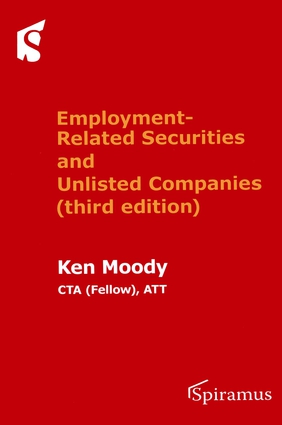
Sign up today...
for featured titles, special offers, bestsellers, and more, in your inbox!


BUSINESS & ECONOMICS
408 Pages, 6.14 x 9.21
Formats: Trade Paper, PDF
Trade Paper, $80.00 (US $80.00) (CA $101.00)
Publication Date: September 2017
ISBN 9781910151501
Rights: US & CA
Spiramus Press (Sep 2017)
Part 7 consists partly of anti-avoidance rules relating to shares and other securities acquired or disposed of under the above categories. The rest of the legislation is concerned mainly with the tax-advantaged securities option arrangements, though the major emphasis in this work is on the Enterprise Management Incentives ('EMI') share option scheme. EMI options are of relevance mainly to unlisted companies due to the financial and other limits applicable.
The book also explores employee share acquisitions through various means, the relevant capital gains tax rules and corporation tax relief for employee share acquisitions. Basic share valuation methodology is discussed and though PAYE and NICs do not apply generally to unlisted company shares/securities, they may apply where a market exists for the securities or on the occurrence of events related to ERS. Lastly, the compliance requirements with regard to online registration of schemes, annual returns, penalties etc, are also featured.
The vast majority of companies registered with Companies House are unlisted companies and OMB/SME owner-managers and their professional advisers need to be aware of the impact of the ERS rules and of both the pitfalls and the opportunities presented. Part 7 is complex and confusing but important legislation. The detailed commentary provided here aims to provide its target audience with as complete a guide as possible to both the technicalities and the practicalities involved in a wide variety of circumstances.
There is no other publication of its type which deals with the ERS rules in depth and, as explained, this is a subject which all company owner-managers and their advisers need to be informed about.